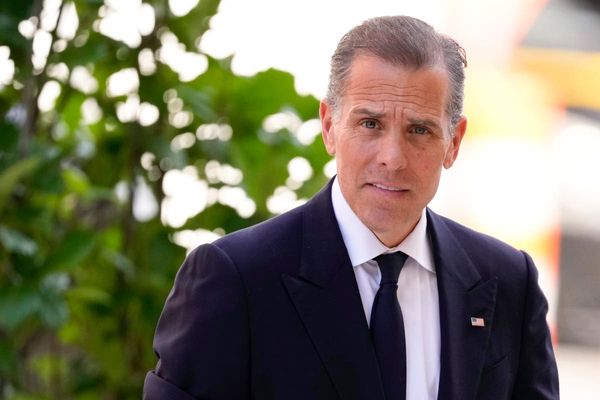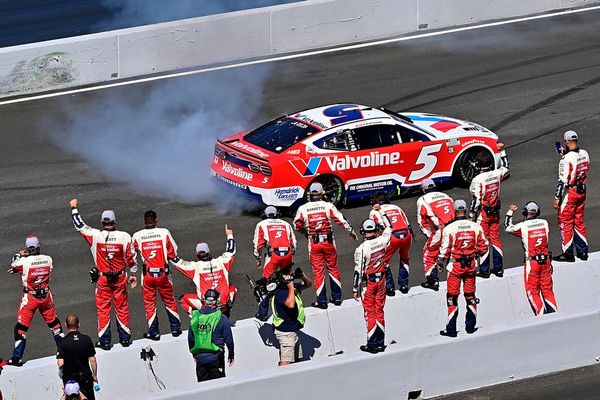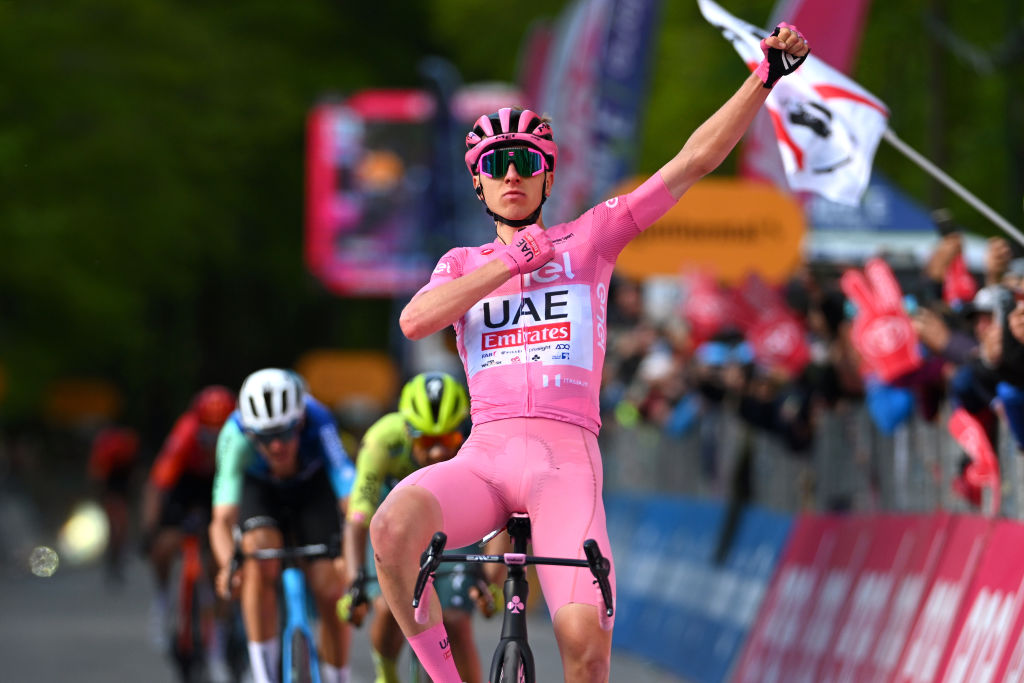
Tadej Pogačar is seemingly incapable of taking a day off. Stage 11 of the Giro d’Italia to Francavilla al Mare ended in the inevitable bunch sprint, but the maglia rosa still couldn’t help but throw himself headlong into the fray, riding in the front positions deep into the final kilometre in support of his UAE Team Emirates companion Juan Sebastian Molano.
It’s doubtful that an entire Giro has been eclipsed by a single rider to the same extent since the turn of the century when Marco Pantani’s every move flooded the airwaves and dominated newspaper headlines day after day on the corsa rosa.
Prior to his expulsion from the 1999 Giro for an elevated red blood cell count, Pantani’s remorseless pursuit of stage victories had provoked dark grumbles from within the gruppo about his dominance. When Pantani returned a year later, he was a shadow of himself from a sporting viewpoint, but he felt compelled to enact his own, short-lived media boycott amid complaints from his peers that they were being ignored by a sala stampa fixated purely on the melodrama of Il Pirata.
Pogačar, for his part, hinted at a certain disaffection from the rest of the 2024 Giro peloton towards his dominance when he met the press after stage 10 to Bocca della Selva. The stage through the rugged mountains of the Matese was, like most on this Giro, well-tailored to his gifts, but his UAE Team Emirates squad opted not to chase the day’s early break.
“Sometimes there’s too many people in the peloton saying that we need to share a piece of pie,” Pogačar said when he took a seat in the press conference truck.
After running up a lead of 2:40 and winning an early hat-trick of stages, Pogačar seemed to be implying that he now felt compelled to allow the rest of the Giro gruppo their turn to drink from the well.
Such thinking has always been part of the ambiguous, unwritten etiquette of Grand Tour racing, after all. In past generations, the peloton was regularly ruled by benign dictators, who helped to prop up their empires by carefully dispensing favours and creating allies. It was a quid pro quo that kept everybody more or less happy.
“That cycling doesn’t exist anymore,” Astana-Qazaqstan directeur sportif Giuseppe Martinelli told Cyclingnews. “These days in cycling, the strongest rider wins, and everybody accepts that. There’s no longer the strategy of somebody paying you back the following day and so on.”
Martinelli was Pantani’s directeur sportif at Mercatone Uno, and he also witnessed firsthand how Miguel Induráin deployed his own brand of soft power on the Tour de France peloton of the 1990s, by shoring up the general classification early on and then allowing the break ample leeway thereafter.
Pogačar’s preferred mode of managing the lead at a Grand Tour could scarcely be further removed from Induráin’s. Martinelli, however, views the Slovenian’s approach simply as an indication of how attitudes have changed in the 21st century. These days, races are there to be won rather than bartered. No more, and no less.
“In the past, people would have been saying, ‘What’s Pogačar doing up there risking everything in the sprint?’ but nowadays it’s not like that because the world of cycling has changed,” Martinelli said. “I like this cycling, and I’m an old guy who’s been through everything and a bit more.”
Rivals
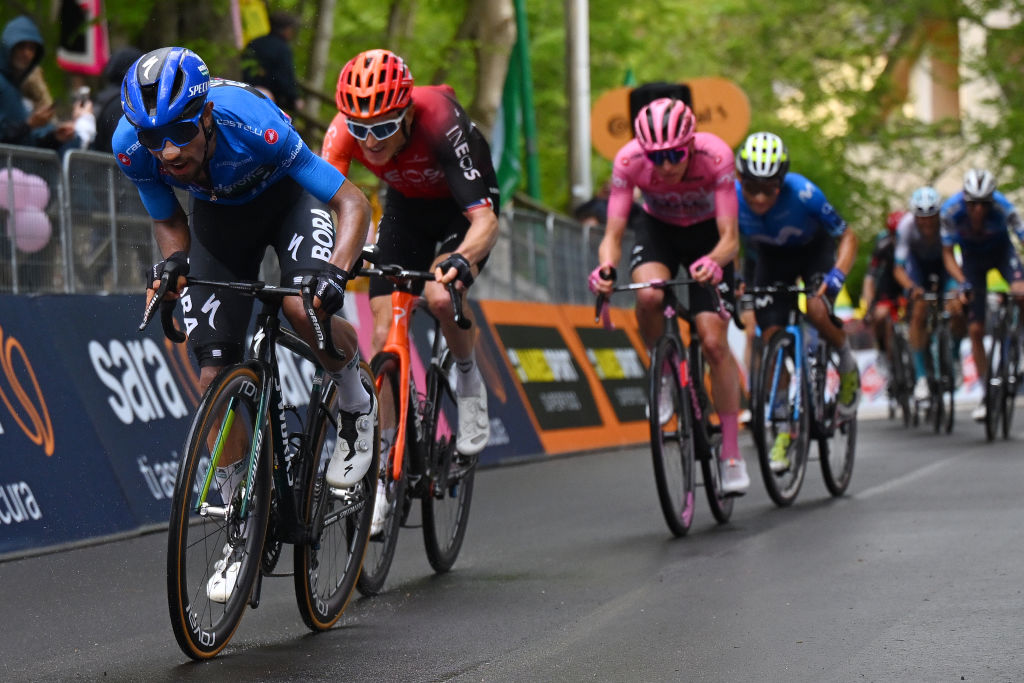
Martinelli’s attitude to Pogačar’s other-worldly dominance was echoed by one of the most experienced riders at this Giro. Damiano Caruso, second overall in 2021, is this year riding in support of his young Bahrain Victorious teammate Antonio Tiberi. At Bocca della Selva, UAE surprisingly opted for a watching brief, allowing the break to stay clear and even yielding the pace-making duties in the pink jersey group to Caruso.
“Honestly, I expected them to go for the stage there, but obviously UAE and Pogačar wanted to send out a signal and give a present to the gruppo, because I think they could have controlled the stage quite easily,” Caruso told Cyclingnews in Foiano di Val Fortore on Wednesday. “But I reckon that might not happen again between here and the end of the Giro, because in the high mountains you can’t joke around – everybody will go and take what he deserves.”
After this year’s Volta a Catalunya, where Pogačar was utterly in command, EF Education-EasyPost directeur sportif Tejay van Garderen suggested that he was “not making a lot of friends right now” by chasing stage victories even when overall victory was long since secure. The concept also exists in Van Garderen’s other love, American football, where teams used to be chastised for “running up the score” against weaker opposition. Even in the NFL, mind, attitudes towards the practice appear to be softening.
“It doesn’t bother me because Pogačar is a talent who has the ability to enjoy himself while he’s racing his bike,” Caruso said. “And you have to remember that, like in every team, there’s a big staff behind him, and the best way to thank all of them is to win.
“The rest of us just have to watch it, and we don’t need to make a polemic out of it. We’re racing with a rider who is going close to being one of the greatest talents of all-time. We’re in a special historical moment, and we almost have to accept that we’re fortunate to be able to see this athlete in action up close. A lot of people at home would pay just to be close enough to him for a photo. So no, I’m not frustrated, I think what they’re doing is right.”
Caruso smiled when asked if everybody else in the Giro gruppo shared that Corinthian point of view.
“I don’t know, I think you’d need to interview every rider in the bunch,” he said. “But I have my own opinion, and this is it. For me it’s not a problem, it’s right that it’s this way. For some people, it could be a problem, but in the cycling of today, the strongest rider wins. There aren’t agreements or things like that.”
Breaking away
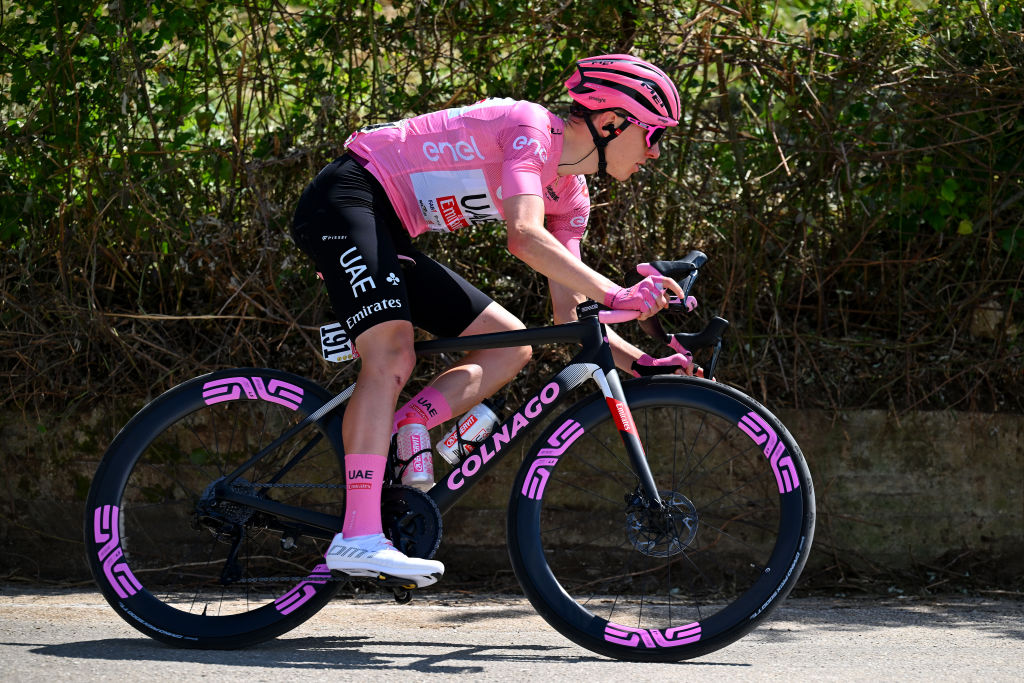
For better or for ill, a leader as stratospheric as Pogačar decides the weather at a race like the Giro. Whenever he flaps his wings, the rest of the gruppo has little choice but to batten down the hatches and ride out the storm. And, on the rare occasions when Pogačar opts to stay on his perch, the men with designs on snaring a stage victory have to make hay.
Few riders at this Giro are as versed in the art of the breakaway as Alessandro De Marchi. He wore the pink jersey for a couple of days in 2021, but the Jayco-Alula rider is still rolling the dice day in and day out to claim the Giro stage victory his efforts over the years have surely merited. He acknowledged that Pogačar’s presence complicates his task on this Giro, but so, too, does the nature of the course.
“That’s the first thing that makes life difficult here, because there aren’t many stages for the break,” De Marchi told Cyclingnews. “There are either sprint days or full-on mountain days, but not really many – or maybe even any – intermediate stages.”
But if the terrain is ill-suited to the would-be escapee, then so too is a climate dictated by Pogačar. He and his UAE team’s hunger for stage victories has meant that the harvest for men like De Marchi was always liable to be a meagre one.
“The presence of Pogačar automatically throws the usual strategies out the window, because now you have a maglia rosa who is present in every phase of the race, not only in the mountains,” De Marchi said. “We weren’t used to this in the past, but at the same time, things have been like this for a while.”
Like Caruso, De Marchi was reluctant to make a polemic out of Pogačar’s desire to make an impression on more or less every stage from Turin to Rome. The unwritten rules, he pointed out, are just that.
“In the end, there are different ways of interpreting cycling,” De Marchi said. “If we look at the general climate, having a leader who is happy to leave opportunities for everybody else makes everybody calmer, but it’s not written in any rule that he has to do that. It depends on his own personality and on what they decide to do as a team. If they left more space for breaks, they would help the overall spectacle, but I understand that’s not a given. They absolutely don’t have to do that.”
For De Marchi, comparing Pogačar’s approach to leading a Grand Tour with those of Induráin or Eddy Merckx is something of a moot point. The game has long since changed. Rather than complain, one is compelled to adapt.
“For me, it’s wrong to tie ourselves too much to things from the past,” De Marchi said. “Things have changed with riders like Pogačar, Evenepoel and Van der Poel. This is cycling in 2024.”
For better or for ill, the pie belongs to Pogačar alone, despite his protestations. Everybody else might have to settle for crumbs.
Get unlimited access to all of our coverage of the Giro d'Italia - including breaking news and analysis reported by our journalists on the ground from every stage of the race as it happens and more. Find out more.
